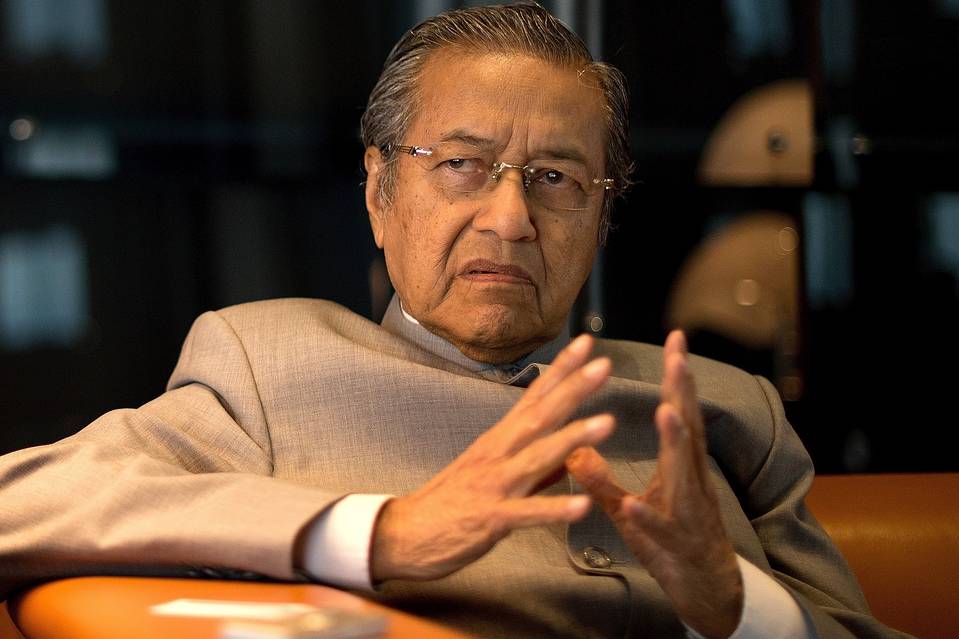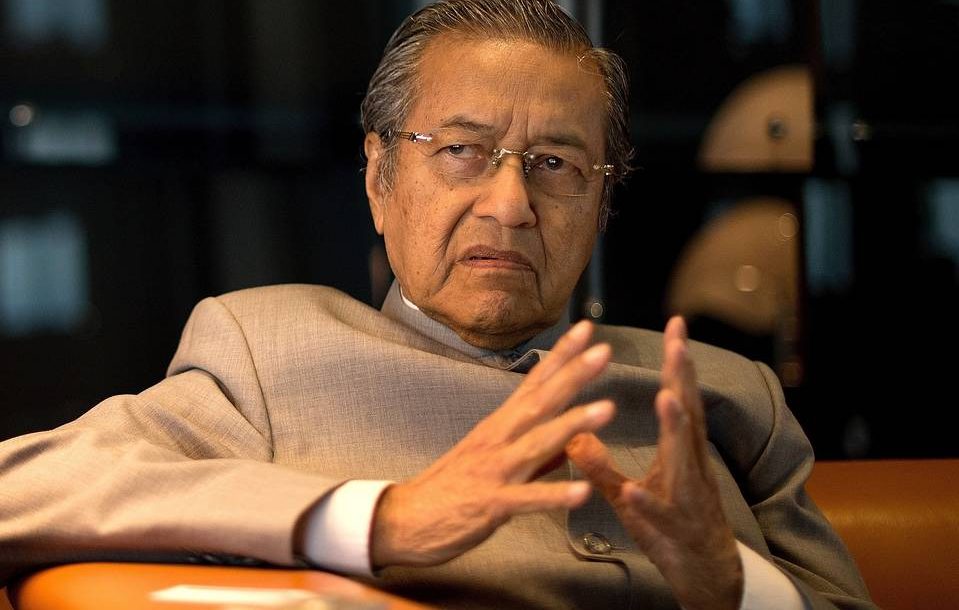
Hopping into bed with Mahathir is an act of narrow-interest desperation, not patriotic duty, writes Manjit Bhatia.
In hounding Malaysia’s scandal-plagued Prime Minister Najib Razak from office, the autocratic Dr Mahathir, his old foes and others have moulded a union – of sorts. Hailed a “realignment” of Malaysia’s politics, some analysts immediately claimed Najib and his clique can’t ignore its peerless example. But is this unholy alliance all that it’s cracked up to be?
Awfully doubtful. Cracks surfaced even before this “political force” is properly forged. A little over a week later and its legs are buckling already.
Parti Keadilan Rakyat wants Anwar Ibrahim, its jailed founder, symbolic head and one-time Mahathir protégé, unconditionally released from prison, to which Mahathir must agree as part of the overall agenda. And elections reformist group Bersih wants Mahathir to admit and apologise for his past sins.
Mahathir has sneered at these tangents. No doubt the alliance’s champions will paper over the cracks. Time will prove that utility. But time is shorter than 90-year-old Mahathir thinks.
The problem is that this confederacy centres on one man — Mahathir. Some members in the dysfunctional opposition Pakatan Harapan, which replaced the defunct Pakatan Rakyat, have begun distancing themselves somewhat from the club. They’re cautious that Mahathir may pull a fast one. Najib, meanwhile, is consolidating his position, increasingly personalising power, particularly since being ‘outed’ by The Wall Street Journal and The Sarawak Report for ferreting at least US $680 million into his private bank accounts amid his theatrical denials. Using a series of oblique transactions, the money appears to have originated from 1MDB.
Still, it’s inconceivable that a small and disparate group of oddly prominent political figures, most of questionable form and almost all of whom seldom see eye-to-eye with one another, think they can purge Najib. They underrate the structures and institutions of state power. These are rooted to work exactingly against all who dare to dislodge him. Indeed Najib strutted his dominance by classifying as secret the auditor-general’s report into the bankrupt 1MDB, the state sovereign fund, and another botched Najib brainchild. Claiming disgust with the scale of official corruption has become a wearisome cliché even by Malaysian standards. What’s curious is that the opposition coalition had not moved voluntarily, either individually or jointly, to initiate the alliance. It was Mahathir who did. After all, Najib’s pestilent presence had been unnerving Mahathir, who had also become frustrated at being broadly ignored.
When Mahathir called for institutional reforms, it sounded vague and hollow, and got only lame sound bites. But when he announced quitting UMNO, his old party, anti-Najib/UMNO players quickly fell in behind the old fox to foster the intriguingly dubbed “Malaysian movement”. So glaring and prevalent is the opposition’s weakness, for until this point its impetus was crumbling. And do not discount blowback.
Significantly, the alliance’s conscripts are deferring to Mahathir. So far he has not put any meat on the bone. For example, exactly how Najib will be ousted and/or the shape of institutional reforms are yet to be spelled out. Yet the coalition of the willing raced to publicly declare the peculiarly named Citizens’ Declaration. Ironically, this “realignment” will only make Mahathir imperious. He’ll call the shots, despite claiming “others” will lead the campaign.
Mahathir’s ‘quit UMNO’ stance was unsurprising. His acrimonious and personal attacks on Najib were proving impotent. His virtual one-man crack at ridding Najib was short on ideas. He struggled to get traction in the state-controlled media, nor among the country’s Malay-Muslims who, crucially, make up 50 per cent of the population. His ‘resignation’ is a last-ditch attempt to undermine Najib.
It is also typically populist. Mahathir is desperate to resurrect his relevance. And all will boomerang if the Malay majority is unconvinced and rejects the alliance, thus also spurning Mahathir as well as the opposition.
If Mahathir succeeds — more than a long shot — he’ll go down in Malaysia’s history as a legend in his own right, and kingmaker too; a role he self-prescribed since retiring in 2003. In 2008 he rolled then Prime Minister Abdullah Badawi, replacing him with his blue-eyed Najib, eldest son of Malaysia’s second premier Abdul Razak. Razak had brought Mahathir back into politics after suspension from UMNO, and immediately elevated him to a senior cabinet position. Regret must cut like a thousand machetes. But one makes one’s own bed.
Mahathir’s stature may have been rebooted but it’ll be transitory. Equally fleeting will be the claim by anti-Najib coalitionists that Malaysia is in the throes of a political “renaissance” that the age of reason, if not audacity, has reached its shores after 59 years of basically one-party rule. If the movement survives the next few weeks or months, it will be thanks to Mahathir. Then he’ll dictate terms.
Except the battle is all treacherously uphill. Save a mass revolt in racially-torn Malaysia, dislodging Najib will be near-impossible. He’s riding the same institutions and power structures that Mahathir had created in his 22-year autocratic rule. And Najib is as calculating as Mahathir. He’ll sync his personal power with its state and institutional variants. Separating party, state and institutions in Malaysia is fatuous; ramming the wrecking ball at one of these will not crush the house.
Elections may be still the best means of ejecting Najib and UMNO from Putrajaya, but not without dire consequences for race relations and the economy. Every election since 1969 has been massively rigged. This is how the UMNO prime minister and his party survive. Also seriously doubtful is Najib being ousted by UMNO’s hand. Najib will have invested heavily in the party’s rank-and-file with politically-linked financial payoffs to solidify his position — just as Mahathir often did for his.
Hopping into bed with Mahathir is an act of narrow-interest desperation, not patriotic duty. Mahathir’s the last person with an interest in democracy, justice and equality that doesn’t border on demagoguery. He’d sooner preserve the crony-infested, ersatz capitalist system that he built than save Malaysia from Najib and UMNO. Otherwise he’d have called for UMNO’s toppling too.
He hasn’t, and won’t. Mahathir will work to safeguard UMNO’s survival post-Najib, if Najib ever goes. Then his handpicked protégés, including son Mukhriz Mahathir, will have a clear shot at ruling Malaysia and extending Mahathirism.
Manjit Bhatia is an Australian university academic and research director of AsiaRisk, an economic and political risk analysis consultancy.
 Facebook
Facebook  Twitter
Twitter  Soundcloud
Soundcloud  Youtube
Youtube  Rss
Rss 